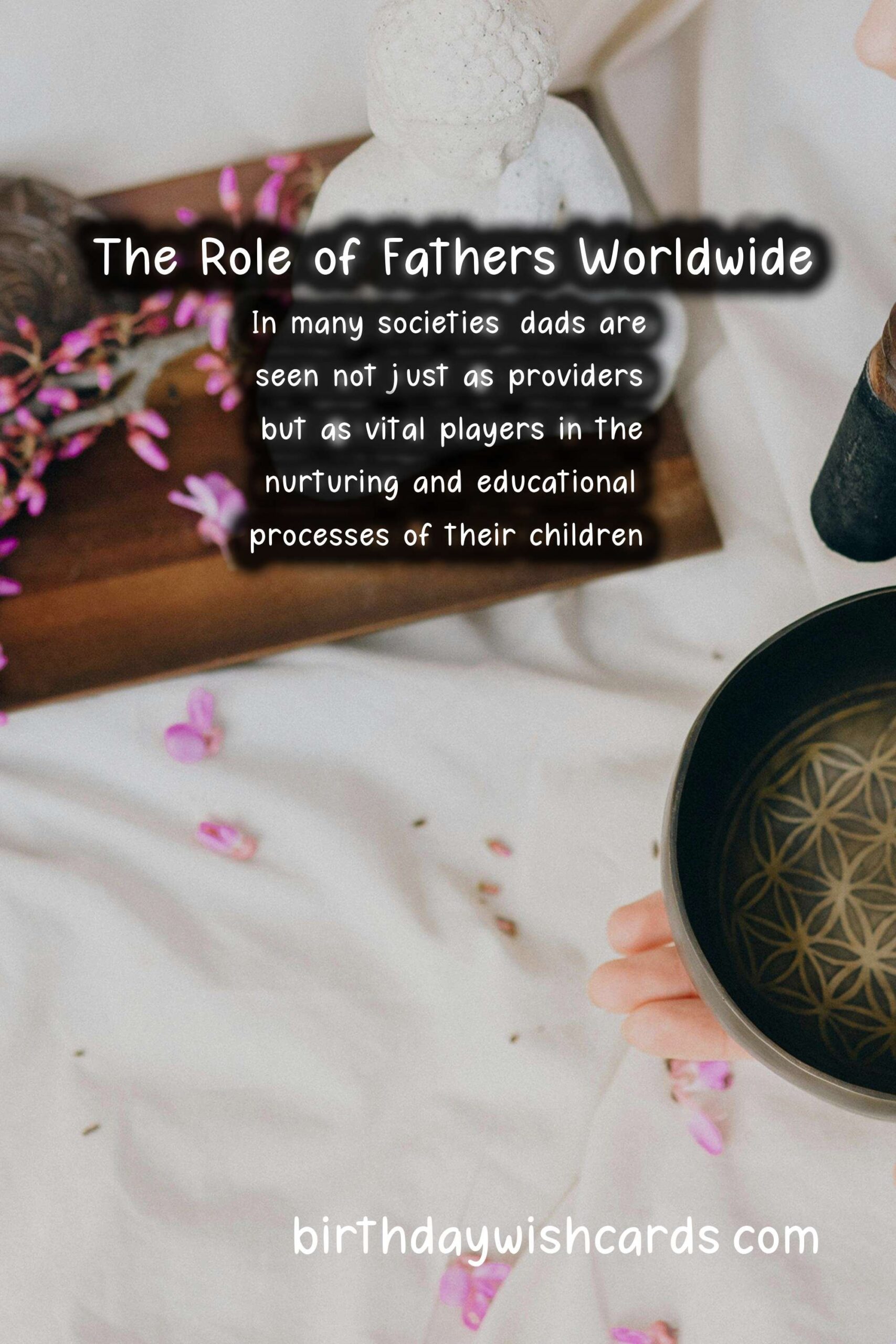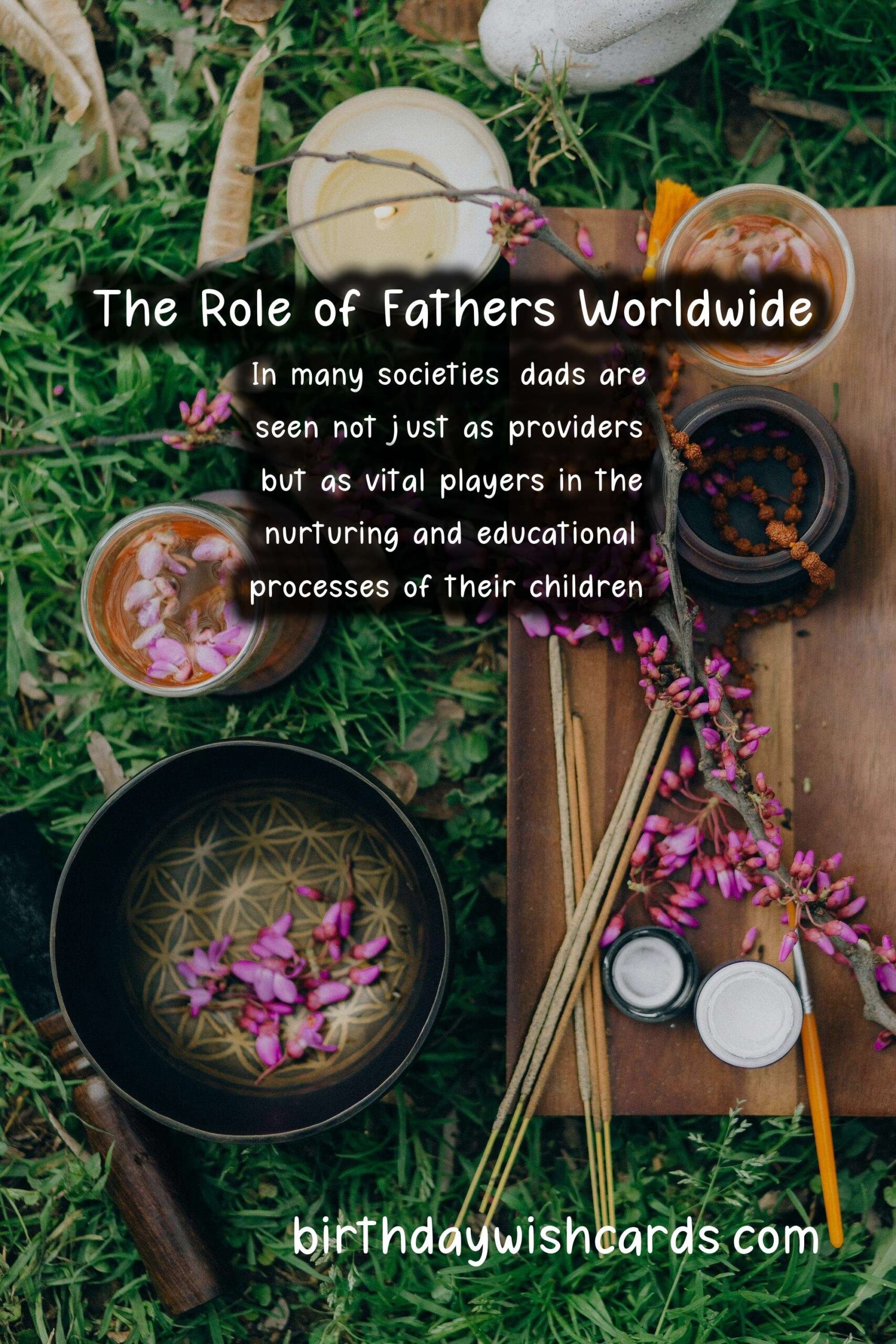The Importance of Dad in Different Cultures
The Importance of Dad in Different Cultures
Fatherhood transcends geographical boundaries, yet its significance varies widely across cultures. In many societies, dads are seen not just as providers, but as vital players in the nurturing and educational processes of their children.
The Traditional Role of Fathers
In traditional settings, fathers often embody the role of the protector and provider. This image is deeply rooted in history, where men primarily provided for their families by working in agriculture, hunting, or securing resources.
For instance, in many Native American cultures, fathers are mentors to their children, imparting skills necessary for survival. They teach their sons the art of fishing or hunting, while also instilling values that connect children to their culture.
Fathers as Cultural Influencers
Beyond mere providers, fathers serve as cultural influencers. In cultures that place high value on respect and etiquette, fathers are often the ones who instill these virtues in their children. In many Asian cultures, for instance, there’s a profound emphasis on filial piety—children’s respect for their parents—often reinforced by fathers.
Modern Fatherhood
In contemporary society, the role of a father has evolved. Modern fathers engage more in hands-on parenting, taking on roles that were once traditionally assigned to mothers. This shift is evident in many Western cultures where paternal involvement in child-rearing is increasingly encouraged.
Variations Across Cultures
1. African Cultures
In many African cultures, the role of a father varies significantly among tribes. In some societies, fathers have the primary responsibility for financial support, while in others, they also play active roles in nurturing their children.
2. Asian Cultures
In countries like India and China, fathers often serve as the family authority figure, making crucial decisions for the household. This patriarchal structure influences societal norms and values.
3. Western Cultures
In Western societies, the role of a father has transitioned from a distant authority figure to a more involved parent. The rise of co-parenting and paternity leave reflects changing attitudes towards fatherhood.
Emotional Impact of Fatherhood
A father’s presence or absence can significantly shape a child’s emotional and psychological development. In many cultures, a father’s involvement correlates with children’s academic success and emotional health.
Fatherhood in Literature and Media
Media representations of fathers also shape societal expectations. Films and literature often portray fathers as either heroic figures or flawed individuals, impacting how society views fatherhood.
Why Father’s Day Matters
Father’s Day is celebrated across various cultures and signifies the appreciation of fathers’ contributions. This observance highlights the different ways fathers are valued through cultural rituals and customs.
Conclusion
The importance of dads in different cultures cannot be overstated. As society evolves, so too does the role of fathers, demonstrating a rich tapestry of influences that ultimately shape family dynamics across the globe.
Fatherhood transcends geographical boundaries, yet its significance varies widely across cultures.
In many societies, dads are seen not just as providers, but as vital players in the nurturing and educational processes of their children.










#Fatherhood #CulturalSignificance






